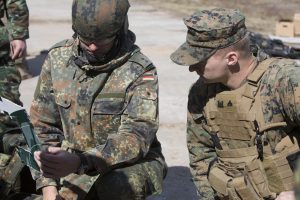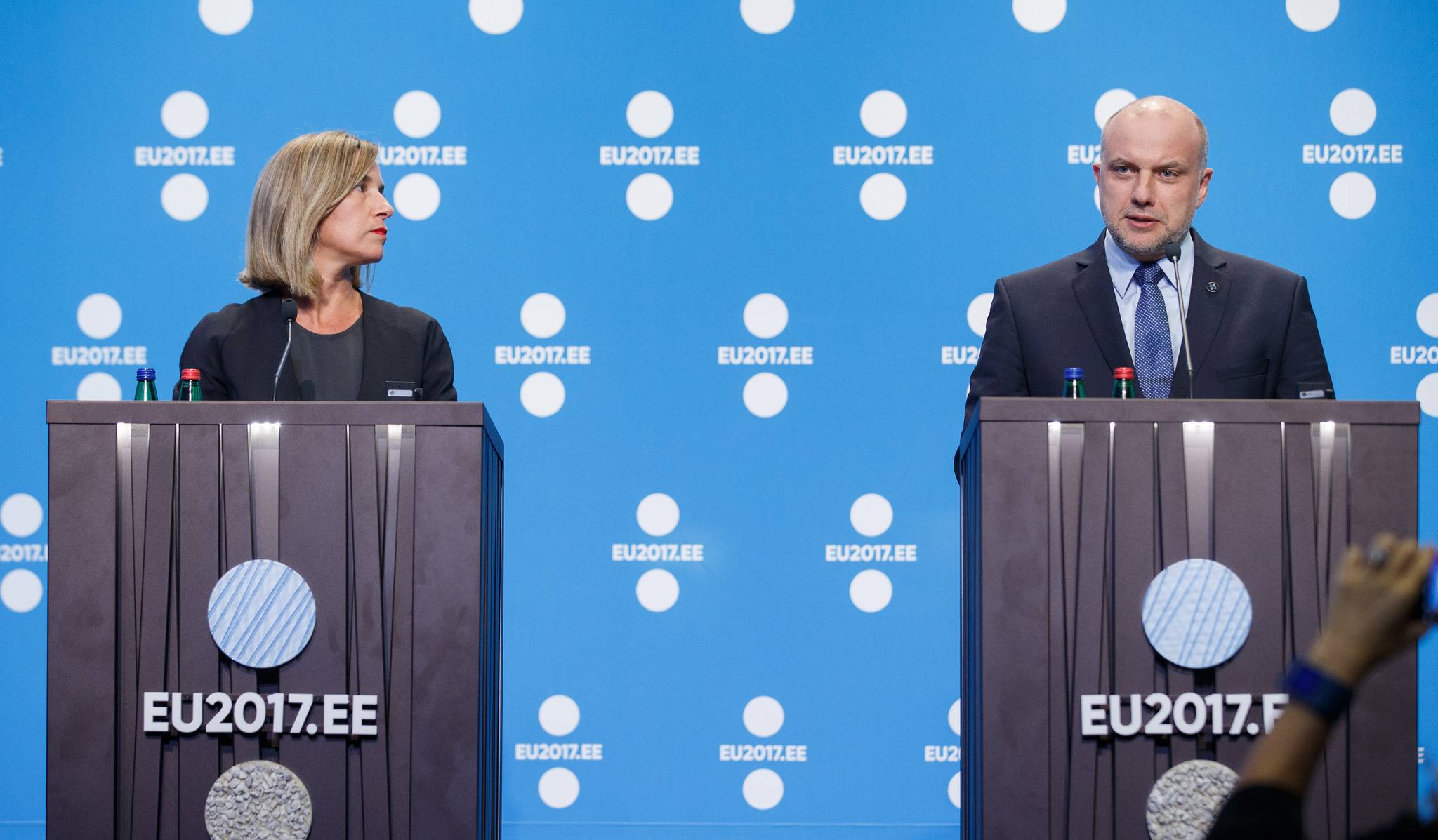Over the past seventy years, Western Europe has seen its security and defense interests largely protected by a hegemonic U.S. military. As Europe gradually decreased its defense spending, it consequently became more and more dependent on American support to guarantee its own defense goals. However, Brexit, the election of Donald Trump, and rising populism in Western democracies have made E.U. defense policy ripe for revision. Trump’s outspoken criticism of NATO during the U.S. presidential campaign, coupled with the departure of the most skeptical E.U. member in regards to further European defense integration, have created the ideal timing for reform.
Faced with this changing geopolitical framework, E.U. leaders have recently sought to step up support for manifold policy initiatives aiming to mobilize individual member states to participate in further defense investment and integration. However, agreement among national leaders extends little beyond a common consensus that more needs to be done, and European bureaucratic processes require major policies to go through years of negotiation and scrutiny. Consequently, E.U. defense initiatives have been relatively modest and have generally fallen short of what its leaders have envisioned.
Why Integrate?
Advocates for E.U. defense integration make a straightforward case. Firstly, while the European Union certainly has an interest in maintaining strong ties with NATO, it also has security and defense interests that might not necessarily converge with those of other NATO members. Today, Europe does not have anything remotely resembling strategic autonomy when it comes to defense. Individual member states spend almost insignificant amounts of their budgets on defense, the upshot of a decades-long trend of cutting defense spending that is only now starting to be reversed. The Union thus relies almost entirely on NATO and the United States to fulfill its security needs.

French troops in a USAF C-17, preparing for a flight to Mali.
Secondly, after decades of integration in almost every other aspect of government, E.U. leaders are finding that its single market, Schengen––the Union’s treaty on the free movement of goods and people––, and many other initiatives have made many external security threats to individual member states common to all. “Threats that used to concern only individual nations now concern the whole Union, because the E.U. has become so much more integrated over the past few decades,” said Harvard professor Manuel Muñiz, in an interview with the HPR. The free movement of people and goods, for example, makes border control problems a concern of all member states.
Advocates of integration argue that the defense structures that can best counter these problems are most efficiently pursued through supranational organizations like the Union. If cooperation were achieved, each national army would not have to maintain the same structures, and the pooling and sharing of resources would become a valid possibility. Back in 2009, Italy’s foreign minister articulated this idea by arguing that, in the current paradigm, “[e]very [E.U.] country duplicates its forces, each of us puts armored cars, men, tanks, planes, into Afghanistan. If there were a European army, Italy could send planes, France could send tanks, Britain could send armored cars, and in this way we would optimize the use of our resources.” The aim of further integration is not, however, to replace NATO structures. NATO is still the primary framework for transatlantic defense cooperation in missions that are within all of its members’ interests. An E.U. defense integration initiative would instead focus on missions that are within the Union’s interests, but which may not align with NATO countries’ military priorities.
Current Trenches
The pathway to further E.U. defense integration has not been smooth. Serious initiatives have only begun to be proposed over the past couple of years, making use of mechanisms outlined in The Lisbon Treaty and the Common Security and Defense Policy.
Part of what has caused such initiatives to lack in vigor and effectiveness has been the fact that, although there is some consensus among E.U. elites that more cooperation is a positive step forward, the terms remain contentious. While countries such as France and Germany are keen on pressing forward with more integration initiatives, countries such as Austria, whose constitution prohibits it from entering into military alliances with other countries, are less enthused by such prospects. This leads to policy proposals by the Union that lack in purpose and vision, and which are closer to statements of ideal cooperative utopias than concrete policy suggestions.

A U.S. Marine and German soldier in Latvia during Exercise Summer Shield. April 2017.
In an attempt to overcome this challenge, The Lisbon Treaty established a mechanism for a core group of countries to step up defense investment and cooperation. This framework is called Permanent Structured Cooperation, or PESCO. But even initiatives such as PESCO have not yet found sufficient political will to materialize into something more robust than mere proposals. “The mere fact that PESCO exists as a potential instrument within The Lisbon Treaty, on its own, is not enough to make it materialize into something more concrete,” stated Yale professor Jolyon Howorth in an interview with the HPR. Many view PESCO’s prospects with considerable skepticism because “there are underlying differences of opinion on what [PESCO’s] objective is, and countries remain slightly wary of each other,” according to Howorth. Indeed, no concrete proposals have come out of Brussels which aim to bring PESCO into being.
The European Commission, the body responsible for proposing and implementing E.U. initiatives, has put forward a number of proposals to motivate countries towards a path of greater defense integration. These include the creation of a European Defense Fund, or EDF, and initiatives to make lending from the European Investment Bank more accessible to small businesses in the defense industry. The EDF’s scope and purpose, while clearer than many other policy proposals advanced by the Commission, still fall short of establishing a sufficiently meaningful platform for funding defense initiatives on a European level. As an example, the most recent figures aim for a 90 million euro investment in R&D for the whole EDF through 2019––a relatively small amount for a Union of more than 500 million people. After 2019, funding for the EDF will come from the E.U. budget, which means that its approval will be dependent upon lengthy budgetary negotiations. As for EDF investment in actual defense capabilities—procurement, armaments, and the like––current proposals allow each individual government to decide how much to contribute to each project, a process that will subject any form of investment to national budgetary negotiations in every one of the Union’s twenty-seven member states (excluding the United Kingdom).
A Test of European Resolve
Many of the individual policy proposals outlined by the Commission require either unanimity or qualified majorities of member states’ E.U. representatives in order to be implemented. This makes the European Union incapable of acting on a sufficiently strong and decisive basis without having to go through years of back-and-forth diplomatic negotiations over every single detail of each proposal. Muñiz stressed that “the E.U. needs processes that allow alliances through simple majorities to emerge, where action is feasible.”
On top of these challenges, already lackluster political will to step up defense investment and cooperation is being further impaired by the wave of Euroscepticism and isolationist nationalism currently sweeping many Western democracies. Defense integration requires that nations cede some of their power over defense spending to Brussels, and the current political climate makes such concessions ever more difficult for politicians to make. The European Union is increasingly seen by many of its citizens as a giant machine run by unelected bureaucrats who lack the democratic legitimacy to centralize power in European institutions, making it hard for anyone running for office to vigorously defend a platform of defense integration.
However, European defense integration has been able to rally more support from national leaders over the past few months. Emmanuel Macron’s electoral successes in France, for example, have fuelled hopes that defense integration initiatives might be able to take off sooner than expected. Moreover, recent significant events have propelled the Union to more seriously question the lack of a strong and integrated European defense community. Despite this, as obstacles mount for those seeking to advance the aim of a more integrated European defense paradigm, questions remain about the future of such initiatives. Should defense integration fail, Europe might find itself in a weak position to guarantee its own security needs in areas where its interests do not align with NATO’s. Furthermore, a failure on the part of the European Union to act in the light of such a historic opportunity would ultimately vindicate one of its critics’ primary charges: that the Union, due to its complicated bureaucratic procedures, is unable to act in Europeans’ best interests.
Image credit: Flikr/EU2017EE Estonian Presidency // Senior Airman James Richardson/United States Africa Command // Sgt. Patricia A. Morris/U.S. Department of Defense
